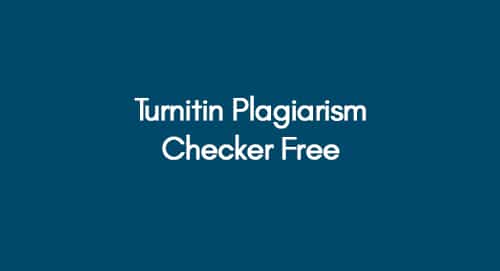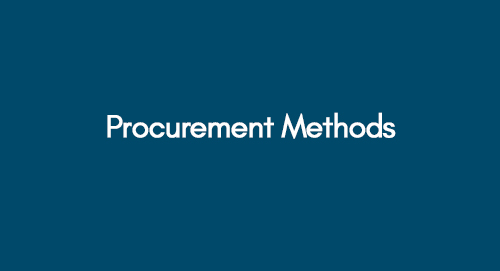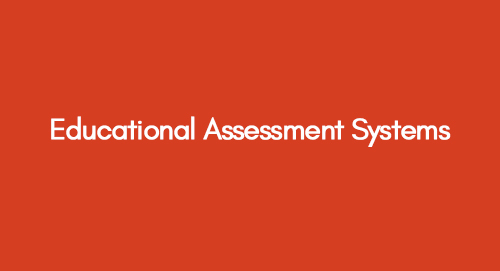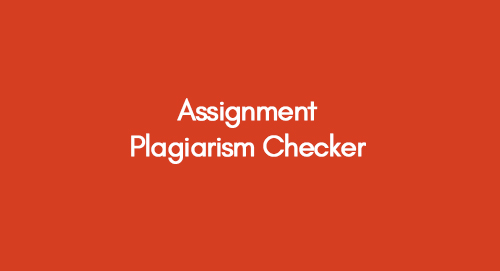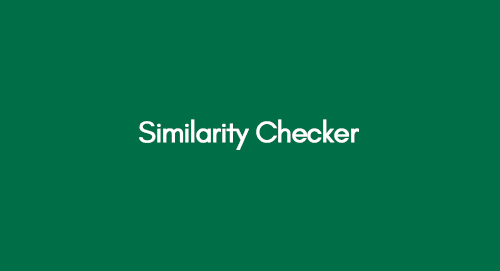
A Free Similarity Checker For Dissertations, Research Papers, Articles, Essays and Assignments
October 5, 2022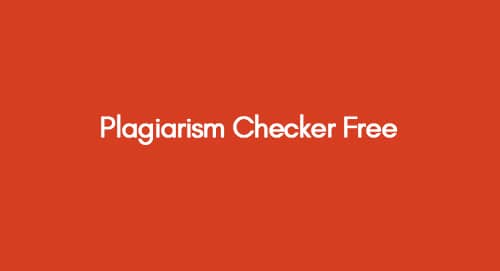
Plagiarism Checker Free Service That You Can Use Multiple Times With No Word Count Limit
October 5, 2022In the digital age, academic integrity is paramount, and plagiarism detection tools have become essential for educators and students alike. Among these tools, Turnitin stands out as a prominent solution, offering a comprehensive plagiarism detection service. This essay delves into the features, benefits, and limitations of Turnitin's free service, providing insights into its efficacy for academic use.
Introduction
Turnitin is a plagiarism detection software that is widely used in academia. It works by comparing submitted papers to a database of over 24 billion web pages and 130 million documents. If it finds matches, it generates a report showing the plagiarism's extent. Turnitin is controversial because some believe it unfairly punishes students for unoriginal work. However, many educators believe it is an essential tool for preventing cheating. Turnitin can also be used to check for potential plagiarism before a paper is submitted, which can help students avoid accidental plagiarism. In short, Turnitin is a powerful tool that can be used to detect and prevent plagiarism.
Discover More about Plagiarism Checkers Free Service
There are several plagiarism checkers available besides Turnitin. Tools such as Grammarly, Copyscape, DupliChecker, and Quetext offer alternative options for checking the originality of written content. These platforms utilize different algorithms and databases to identify duplicate or unoriginal text, providing users with diverse options for ensuring academic integrity and authenticity in their work.
Review the history of Turnitin as a plagiarism detection tool.
History and Evolution of Turnitin as a Plagiarism Detection Tool
Turnitin is a global technology company that provides Internet users with plagiarism detection and prevention tools. Founded in 1997, Turnitin has developed a range of products and services used by educators, students, and businesses worldwide. Turnitin's flagship product is its online plagiarism detection service, which scans submitted papers for text that matches other sources. Once a paper is submitted to Turnitin, the service compares it to billions of online and offline sources, including articles, websites, books, and journals. Turnitin highlights the matching text and provides links to the sources if there are any matches. In addition to its plagiarism detection service, Turnitin offers products and services to avoid plagiarism, such as educational resources and citation management tools.
Why Use Turnitin?
Turnitin is an online plagiarism checker that helps educators to identify potential plagiarism in student papers. By comparing submitted papers to a database of billions of web pages and millions of academic papers, Turnitin can flag copied or paraphrased text instances. This can be helpful for educators who want to ensure that their students are source material. In addition, Turnitin provides feedback tools that help students to improve their writing. For example, the Originality Report highlights instances of matched text, so students can see where they may need to make corrections. As a result, Turnitin can be a valuable tool for educators and students.
Turnitin is an effective tool for preventing plagiarism, but it can also be used to help students learn more about academic integrity.
How to Use Turnitin Effectively?
To use Turnitin effectively, students should first be aware of the expectations for academic writing. They should also be familiar with the different types of resources that they can use to support their work. Finally, they should know how to interpret the results of the Turnitin report. By taking these steps, students will be better prepared to use Turnitin as a learning tool rather than simply a way to avoid plagiarism.
When using Turnitin, it is important to keep in mind that the results are not always accurate. In some cases, false positives may occur. This means that a student may get a high similarity score even though they have not plagiarized any material. If this happens, the student should review their work and make sure that all sources are properly cited. If they are unsure about how to cite a source, they can consult their professor or a style guide.
Overall, Turnitin can be a valuable resource for both students and teachers. When used effectively, it can help students learn more about academic integrity and avoid plagiarism.
Are there Any Alternatives to Turnitin?
While Turnitin is the most well-known plagiarism detection service, there are several alternatives available. One option is Unicheck, which offers a similar range of features to Turnitin. Another option is Copyscape, which focuses on detecting plagiarism online. Plagscan is another option that offers a free basic version as well as a more comprehensive paid version. Whichever service you choose, it is important to make sure that it is compatible with your learning management system. In addition, you will need to consider the cost of the service and the features that you need.
Critics often raise concerns about Turnitin's potential to inaccurately flag content as plagiarized and its impact on students' critical thinking skills.
Limitations of Turnitin Plagiarism Checker
The following are the limitations of the Turnitin.
- False positives and misinterpretation of results
- Instances where Turnitin may incorrectly flag content as plagiarized
- Importance of human interpretation alongside Turnitin's automated analysis
- Privacy concerns related to submitting student work to Turnitin
- Data security measures implemented by Turnitin to safeguard sensitive information
- Issues regarding the storage and handling of student submissions
- Lack of transparency in Turnitin's algorithm and database sources
- Challenges in accommodating diverse research citation styles and formats
- Potential for over-reliance on Turnitin's feedback, diminishing critical thinking skills
- Accessibility issues for students with disabilities or those using assistive technology
- Criticisms of Turnitin's pricing model and affordability for educational institutions
- Ethical considerations surrounding the use of Turnitin as a surveillance tool rather than an educational aid
Conclusion
Turnitin is a valuable tool for preventing plagiarism and promoting academic integrity. However, it is important to keep in mind that the results of the similarity report are not always accurate. If you are unsure about how to interpret the results, you should consult your professor or a style guide. In addition, there are several alternatives to Turnitin available, so you will need to choose the service that best meets your needs. Whichever service you choose, make sure that you are familiar with the features and capabilities before using it.
Get 3+ Free Dissertation Topics within 24 hours?

















